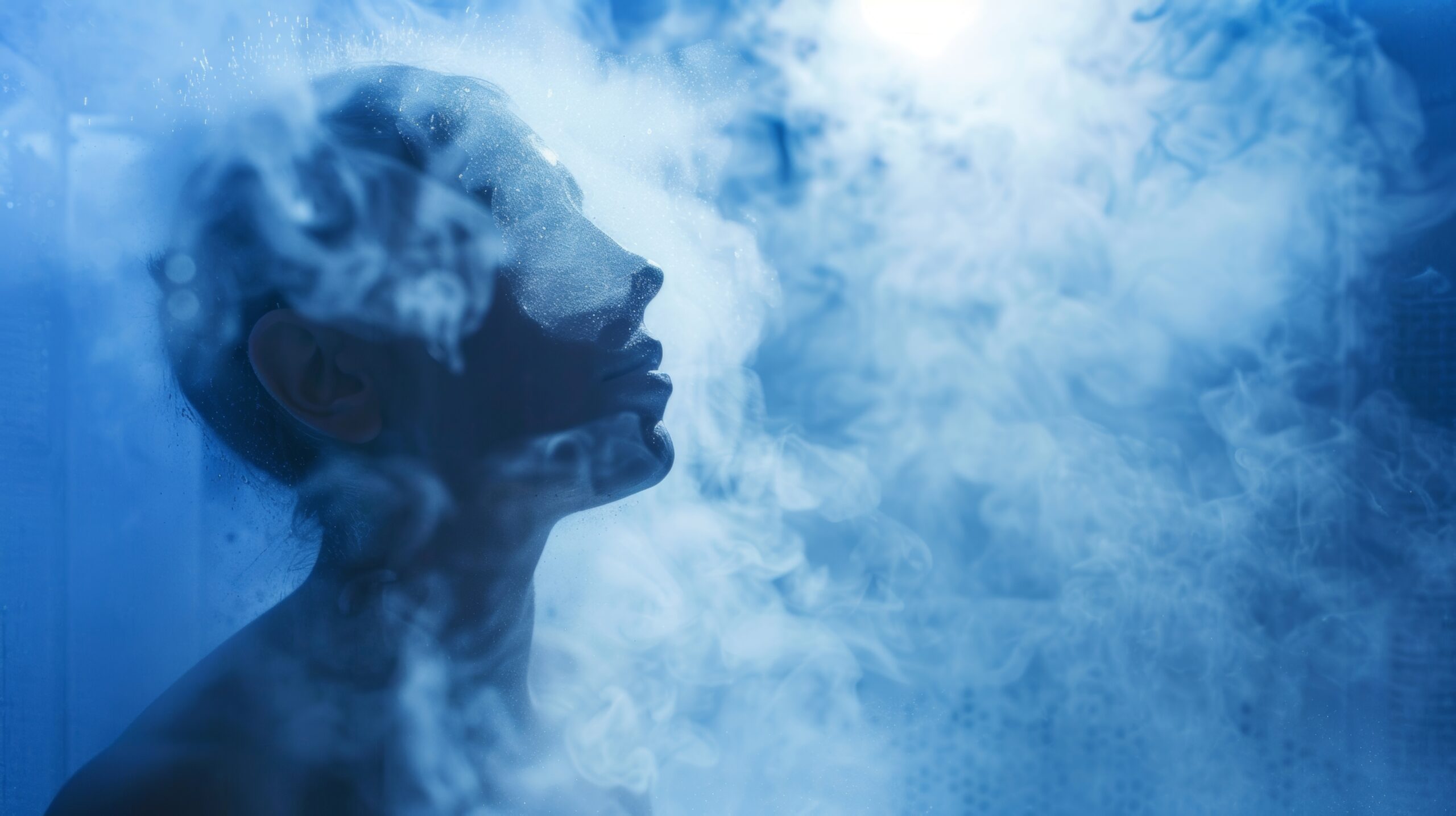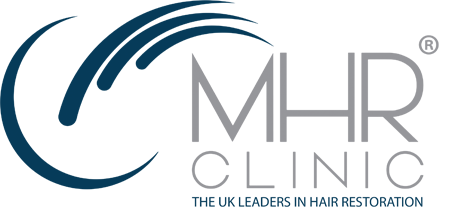In recent years, cryotherapy — the use of extreme cold to stimulate healing or rejuvenation — has gained traction in the wellness world. From ice baths to cryo chambers, it’s been promoted as a cure-all for everything from inflammation to anxiety. Some clinics have even begun marketing “scalp cryotherapy” as a new way to boost hair growth.
But at MHR Clinic, we take an evidence-led approach to every treatment we offer. And when it comes to using cold exposure for hair restoration, the science simply doesn’t stack up. Below, we look at why scalp cryotherapy isn’t the breakthrough it’s made out to be, the risks you should be aware of, and why more established treatments — like laser therapy, medical prescriptions, and herbal formulations — remain the smarter, safer choice.

The Theory Behind Scalp Cryotherapy
In theory, cooling the scalp could stimulate the hair follicles through “hormetic stress” — a controlled shock that might encourage repair and improve circulation when the skin re-warms. It’s also said to reduce inflammation, much like applying an ice pack to sore muscles.
Unfortunately, that’s where the scientific support ends. There are no peer-reviewed clinical studies showing that cryotherapy can trigger new hair growth, thicken existing hair, or reverse pattern baldness. The evidence base is largely anecdotal, based on small experiments or beauty-industry marketing rather than robust, controlled trials.
What the Research Actually Says
-
Chemotherapy scalp cooling ≠ hair regrowth:
The most established use of cryotherapy on the scalp is during chemotherapy, where cooling caps are used to prevent hair loss by reducing blood flow and limiting drug absorption. That’s the opposite of what’s needed in typical hair loss — where we want to increase blood circulation and nutrient delivery, not restrict it. -
No evidence of follicle stimulation:
While some animal studies have explored cold exposure and stress response in skin tissue, none have demonstrated measurable improvement in human scalp density or follicle activity. -
Potential interference with proven therapies:
Cooling the scalp may constrict blood vessels, reducing the absorption and effectiveness of topical treatments like minoxidil or herbal growth serums — counteracting the very mechanisms we rely on for stimulation.
The Risks of Scalp Cryotherapy
While marketed as harmless, cryotherapy is not risk-free — especially when applied to delicate skin on the scalp.
-
Cold burns and frostbite:
Improperly controlled cooling devices can cause skin damage, blistering, and even permanent pigmentation changes. -
Exacerbation of scalp conditions:
For people with psoriasis, eczema, or seborrhoeic dermatitis, extreme cold can trigger irritation and flare-ups. -
Reduced blood flow:
Short-term vasoconstriction may seem beneficial, but repeated restriction can reduce nutrient and oxygen supply — two key factors hair follicles rely on to grow. -
Temporary results, if any:
Any perceived “tightness” or reduction in scalp redness is cosmetic and short-lived. Once the scalp returns to normal temperature, there’s no lasting benefit.
Why MHR Clinic Focuses on Proven, Science-Backed Therapies
At MHR Clinic, our goal isn’t to follow every new trend — it’s to deliver treatments that actually work. Our laser therapy, prescription medications, and natural products are supported by years of clinical research and consistent results for our clients.
-
Laser Therapy:
Low-Level Laser Therapy (LLLT) improves blood flow to the scalp, energises hair follicles at a cellular level, and has strong scientific backing for promoting thicker, healthier hair. -
Prescription Medication:
FDA-approved treatments such as finasteride and minoxidil (when appropriate) address the hormonal and vascular causes of hair thinning, rather than masking them with temporary effects. -
Herbal and Natural Formulations:
Our herbal hair-growth supplements and scalp serums contain plant-derived ingredients like saw palmetto, biotin, and caffeine — shown to support follicle health naturally, without the harsh extremes of temperature or invasive procedures.
The Bottom Line
Cryotherapy for scalp and hair health may sound futuristic, but the truth is, it’s more hype than help. The lack of credible clinical evidence, the risk of damaging the scalp, and its counterproductive effects on circulation make it an unreliable choice for anyone serious about tackling hair loss.
In contrast, the combination of laser therapy, medically approved medication, and natural herbal products at MHR Clinic offers a safe, proven, and sustainable route to restoring your hair and confidence.
If you’re considering scalp cryotherapy, we’d recommend speaking to a specialist first — so you can make an informed decision based on facts, not fads.
If you would like to discuss your hair loss or would like more information on our services and how we could help you.
Click Here to Enquire
